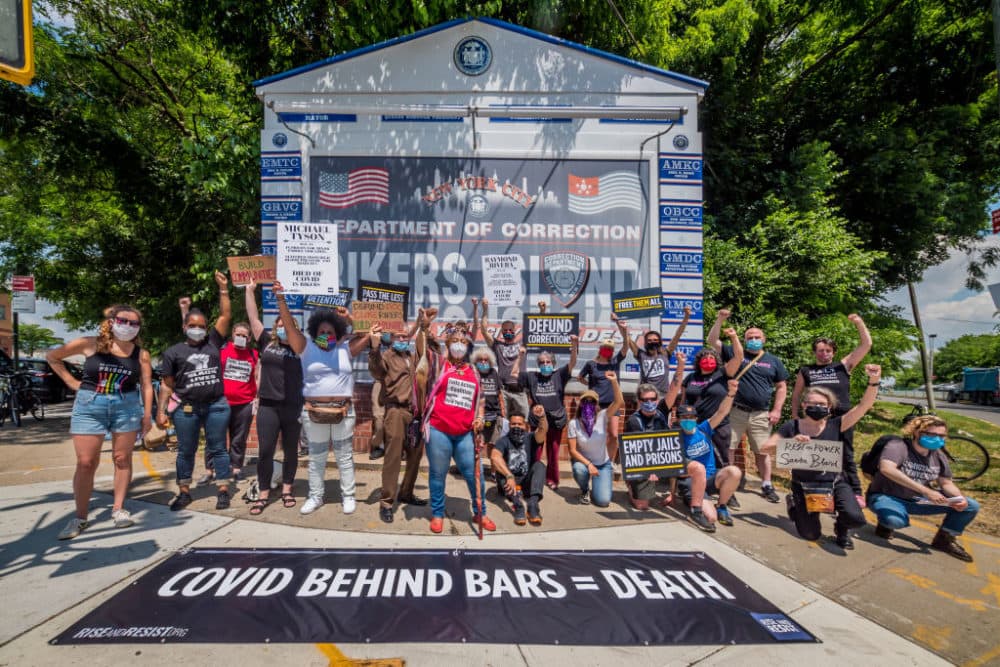Advertisement
Commentary
The Education Judges Don't Get Is Potentially Deadly

Joe Messere died while behind bars. Although he first sought compassionate release in March 2020, the Massachusetts Parole Board and Department of Correction repeatedly denied his pleas for help. It wasn’t until Messere was on a ventilator in the ICU that the DOC commissioner finally acted and granted him a medical parole. It was too little, too late. He died a week later from COVID-19.
As of June 2021, there have been over 417,441 confirmed cases of COVID-19 in correctional facilities across the country. At least 2,730 people have died due to COVID-19 while incarcerated; the expected death rate for people in prison during the height of the pandemic was three times higher than the expected death rate for people not incarcerated. And it’s not just those behind bars who have suffered: there have been 114,237 cases of COVID-19 among prison staff. And cases in correctional facilities have also led to major outbreaks in surrounding communities.
Compassionate release — in some states known as medical release parole or medical release — could be a lifeline, stemming the spread of COVID-19 within and outside prison walls. But judges have refused to grant enough release requests to make a difference.
One of the challenges is that judges often fail to recognize the social roots of public health threats. Most judges have had little exposure to the science related to social determinants of health, the conditions including access to safe housing, nutritious food and education that affect health. Legal norms tend to rely on a view of each person’s health as solely dependent on their own actions and biology; the role of law in creating and reinforcing health disparities is rarely taught. As a result, legal professionals are left without the tools for making informed decisions while applying laws that relate to public health and safety.
It’s time to fill this gap in judicial education. Judges need to develop a more nuanced understanding of the social determinants of health, and how their rulings affect health outcomes.
As the delta variant continues to surge, judges need to understand that prisons are the perfect incubators for COVID-19. They are notoriously overcrowded, making it virtually impossible to implement social distancing. Adding to the dangers, most incarcerated people are at heightened risk for severe disease due to pre-existing medical conditions and the effects of social disparities.
Judges need to develop a more nuanced understanding of the social determinants of health, and how their rulings affect health outcomes.
Prison populations have remained too high throughout the crisis. To date, prison officials have granted very few -- less than 2% in the federal system -- requests for release. Prisons also fail to test prisoners or provide adequate health care and social distancing.
Prison systems, however, are not alone in failing to protect incarcerated people. Responsibility also lies with judges who decide whether to grant petitions for release. The First Step Act of 2018 allows federal inmates to appeal directly to the federal courts for compassionate release. This makes it possible for people to seek their freedom and safety after being denied or ignored by the Bureau of Prisons.
The Act amended the compassionate release process to provide two grounds for release. First, an incarcerated person can qualify by being at least 70 years old, serving at least 30 years of their current sentence and not being a danger. The second ground is that there are extraordinary and compelling reasons that justify an early release. In these instances, courts must also consider the seriousness of the initial offense, their personal history, and any potential threat they might pose to public safety before granting compassionate release. During the pandemic, incarcerated people who did not meet the age and sentencing requirements have argued that the threat to their health from being detained during the pandemic were extraordinary and compelling reasons justifying release.
[L]egal professionals are left without the tools for making informed decisions while applying laws that relate to public health and safety.
The good news is that some federal judges granted these petitions for inmates with underlying medical conditions, such as type 2 diabetes, asthma, hypertension, obesity and prior COVID-19 infections. For the most part, however, judges have limited their compassion to petitioners with well-known medical conditions, failing to recognize the ways in which social inequities can create risk.
Most judges viewed the risks of COVID-19 in purely biomedical terms, as if people without a specific diagnosis were not in danger. But while people with certain conditions do face a heightened risk, so do people with social vulnerabilities. For example, Black people have been disproportionally affected by COVID-19, even after risk factors like diabetes and asthma are taken into account. Social factors that lead to chronic stress, such as discrimination, contribute to this increased risk.
Judges must step up and enhance their understanding of how social determinants — and legal decisions — affect health, to meet the demands of this pandemic and to anticipate the public health threats of the future. Judicial education programs focusing on the social determinants, such as Salus populi, a program our team has developed, can help judges become better educated about how social factors influence the health of individuals and populations.
Judges who know more about these factors possess a deeper understanding of the risks faced by incarcerated persons, and may grant more release, preventing more deaths. If they move quickly now, lives — within and outside of our prison walls — could still be saved.

